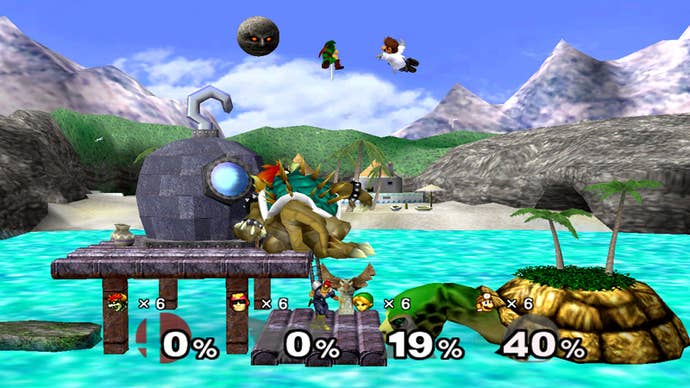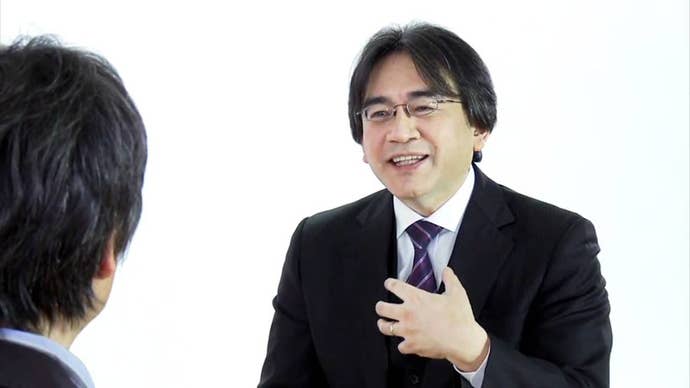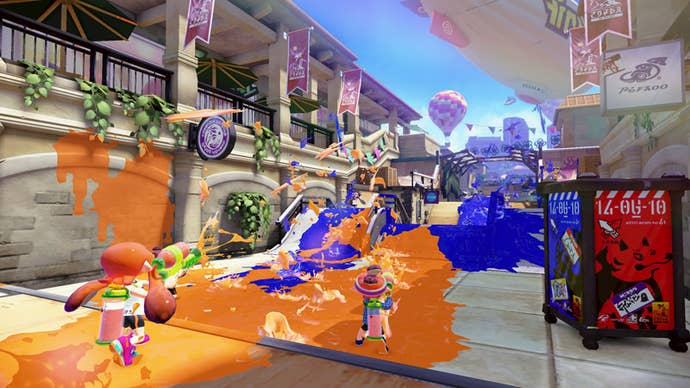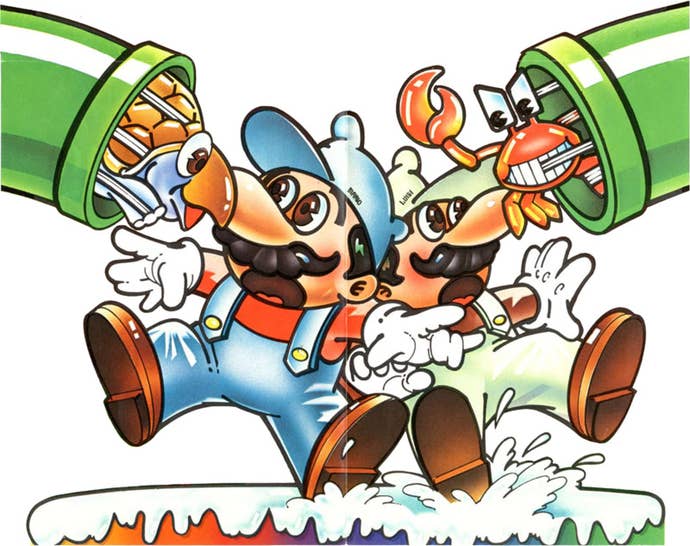Satoru Iwata's 10 Greatest Achievements
Why do so many people care about the untimely death of Nintendo's president? Because he was far more than just an executive.
This article first appeared on USgamer, a partner publication of VG247. Some content, such as this article, has been migrated to VG247 for posterity after USgamer's closure - but it has not been edited or further vetted by the VG247 team.

6. Salvaged Pokémon, Smash Bros., Dragon Warrior, etc.
Stop me if this sounds familiar — Nintendo was having trouble with key software releases, Iwata stepped in, suddenly everything was working smoothly and the game in question went on to become a hit. It didn't just happen with EarthBound and Balloon Fight; this was a story that happened time and again during Iwata's tenure at HAL and Nintendo. He recoded Pokémon Gold and Silver Versions so effectively that Game Freak was able to add in the region map from Red and Blue. He reprogrammed Dragon Quest for its NES release as Dragon Warrior, and the name wasn't the only thing that changed — the U.S. version was massively upgraded over the rough Japanese original. He contributed to Smash Bros. Melee so that it would hit its target release date. And so on, and so forth; you might even speculate that Iwata's habit of saving Nintendo's bacon inspired Nintendo to install him as president. But his move to the executive table didn't bring an end to his efforts, as he continued fine-tuning key releases like Mario Kart 8 right up until the end.

7. Took a pay cut in lieu of layoffs
Early last year, Nintendo's earnings dropped considerably. That sort of setback is the point at which most executives would announce a restructuring, an attempt to "minimize redundancies" — a euphemistic way to say, "We're laying off a lot of people who had nothing to do with our slump." Instead, Iwata cut his own salary in half — an act that couldn't begin to make up for Nintendo's losses that quarter, but served as an important symbolic statement: The company's troubles began at the top, and that's where the punitive measures should begin. And, beyond that, it was Iwata's way of preserving Nintendo's long-term integrity, retaining development talent in the lean times in order to work toward a stronger future.

8. Established the Iwata Asks series
Nintendo has the single most important legacy and lineage in video games. This is not fandom speaking; it's a simple recognition of history. The company has been a first-party game publisher and console manufacturer for more than 30 years, a longer run than any other company in the business. Their games have invented genres, and their hardware has revolutionized how people play. Unfortunately, Nintendo has always been highly secretive, and its historic works are largely shrouded from the public eye. While we in the press will never have unfettered access to that important creative heritage, Iwata gave us the next best things: For years, he conducted candid interviews with the people who make games — not just current releases, but also essential classics and key hardware innovations. While the Iwata Asks series slowed to a trickle as his health waned, the archive of these interviews stands as one of gaming's most important collections of first-person accounts and anecdotes — a precious and indispensable thing.

9. Changed Nintendo's public face and persona
Nintendo will always be the most Japanese of Japanese corporations, secretive and reserved. But under Iwata, the company began to peel back the shroud of mystery to an unprecedented degree. Again, his predecessor preferred to remain out of the limelight, issuing sharp proclamations that lent the company an imperious air. Iwata's approach has been to give the company a more approachable air, not only through initiatives like Nintendo Direct and Iwata Asks, but also by putting young talent front and center, such as Animal Crossing's Aya Kyogoku. Despite Nintendo's reputation for conservatism, Iwata made and publicized active efforts to nurture new creative sparks, giving major releases like New Super Mario Bros. 2 and Splatoon to new, untested teams.

10. Never lost sight of the essential sense of play that makes Nintendo unique, and great
Perhaps the most impressive thing Iwata accomplished in his 13-year tenure as Nintendo's leader has been to keep the rudder steady amidst a turbulent, changing industry. The rise of smart phone games, free-to-play models, and the costs of developing HD games has turned video games into a difficult business where the easiest approach is to abandon traditional games and latch onto the latest trend. Iwata refused to give in to the countless voices — fans, press, and investors — insisting he do so. While the company continues to explore alternate pay models and even the prospect of mobile gaming, Iwata shepherded these changes to ensure Nintendo would maintain its central integrity. The result is a company that often seems out of step with the rest of the industry — but that uniqueness makes Nintendo important. It's a company that makes games for all people of all ages and cultures, games that exist for the sake of play and fun rather than as addict-tweaking Skinner boxes. For the sake not only of Nintendo but for the industry as a whole, we can only hope that whoever succeeds Iwata will uphold his resolution to maintain Nintendo's one-of-a-kind place in video games.